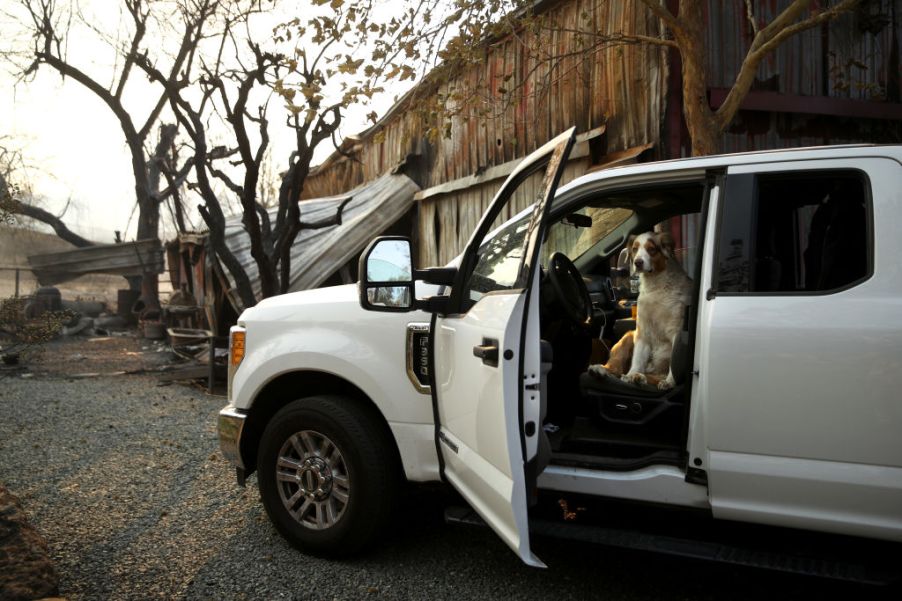
The Biggest Myth About Trucks You Should Stop Believing
Trucks are among the most popular vehicles sold in the U.S. these days. Does this mean you should go for the biggest, most powerful truck you can afford? Or is there something else you should know? Perhaps bigger isn’t always better.
What will you use the truck for?
Some people buy a truck to keep up with the times. Others legitimately need a pickup. Maybe you do a lot of work in your yard and you need to move cargo or debris pretty often. Perhaps in your job, you tow trailers or loads of equipment. The key is to select the best truck for what you plan to use it for.
If you’ll be moving small loads or maybe don’t need to tow at all, why waste money on a full-size heavy-duty truck? If you need to haul hefty trailers, a compact truck won’t be enough. It’s important to know what truck sizes are available and what each is capable of.
Size matters when it comes to trucks
The top brands with the most sales in the U.S. include Chevrolet, Ford, GMC, and RAM. Smaller automakers, like Honda, Nissan, and Toyota, produce trucks too. There are different truck sizes and it’s important to know as much as you can about each before buying one.
Full-sized pickup trucks
Also known as half-ton trucks, full-sized pickup trucks are typically designated with 1500. The more popular of these models include the RAM 1500, Toyota Tundra, Chevrolet Silverado 1500, Nissan Titan, and Ford F-150.
These full-size models are most commonly used as work trucks these days, though they can serve as a family’s backup vehicle, too. They ride higher and sell better than other trucks within the market.
Heavy-duty pickup trucks
Heavy-duty (HD) pickup trucks are designated 2500 or 3500. These are trucks used commercially for hauling fifth-wheel trailers, multi-ton loads, and other similar tasks. According to the government, these and other trucks weighing under 14,000 pounds are “light-duty.” At Ford, these trucks are the F-250 and F-350. At RAM, their HD pickups are the 2500 and 3500.
Compact pickup trucks
Not only are compact pickup trucks smaller in size, but they’re also built using a different chassis than the bigger full-size trucks. They usually have a smaller engine with four to six cylinders.
When you think of compact trucks, think of the GMC Canyon, Toyota Tacoma, Honda Ridgeline, Nissan Frontier, and Chevrolet Colorado. Sometimes they’re called mid-sized pickup trucks.
There’s more than truck size to think about
When you select a truck, it’s important to know if the entire family or work crew can fit in it. What kind of fuel efficiency does it have? How much can it tow? There are other things to consider when buying a truck besides size.
Cab size
The regular cab is the least expensive option. If you have several passengers you need to fit, you may want to opt for a crew cab instead. If you have children, the extended cab may be a good option, too. With a larger, four-door cab, you may lose bed space but there are often several different configuration options.
Fuel efficiency
The base engine commonly used in full-sized pickups is a V6, with a V8 option. The V6 offers a balance between power needs and fuel economy. Most full-sized trucks average 14 to 17 MPG combined while the compact trucks manage an average of 18 to 20 MPG combined.
Powertrains
The powertrain you select should also be suited to your needs. Rear-wheel-drive is common because it lends itself well to hauling heavy loads. Those who enjoy offroading or live in an area prone to winter weather may select four-wheel-drive for traction. Many trucks offer systems that allow you to enable four-wheel-drive for traction when needed.
Towing
Many compact trucks can tow 3,000 to 7,000 pounds while the full-sized pickups can manage 5,000 to 10,000 pounds. Depending on the configuration, HD trucks can often tow anywhere from 12,000 to 31,000 pounds. The capacity of a truck for towing depends on the torque provided by different rear-axle ratios.
Which truck is the one for you?
The best truck meets but doesn’t exceed your needs. So know what those needs are and shop carefully. With some patience, you’ll find the perfect pickup truck for your business or family.


